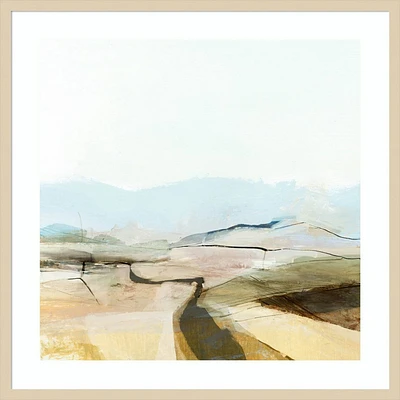Home
The Tory View of Landscape
Loading Inventory...
Barnes and Noble
The Tory View of Landscape
Current price: $67.00


Barnes and Noble
The Tory View of Landscape
Current price: $67.00
Loading Inventory...
Size: OS
*Product Information may vary - to confirm product availability, pricing, and additional information please contact Barnes and Noble
In the eighteenth and early nineteenth centuries, England seemed to be transformed by various kinds of "improvements" in gardening and the ornamentation of the landscape. Many people saw these changes as reflections of highly controversial moral, social, and economic issues. To clear a wood or plant one, to build a folly or a cottage, to design in the formal style or the picturesque, to choose to employ one improver or another—these were all interpreted as decisions that expressed a political orientation. Poets, essayists, political theorists, theologians, and economists debated the merits of a traditional, natural, Christian, organic—or tory—view of the landscape against the aggressive, privatizing, impersonal—whig—tendencies of contemporary improvement.
This illuminating and stimulating book argues that the history of English landscape from about 1760 to 1820 was a struggle between these two points of view. Examining literature, painted and engraved images, and the physical environment of the period, Nigel Everett depicts a lively, intelligent debate about the development of English society and the relation of people to the land, a debate as active among cultivated clergymen and landowners as among the theoreticians. Furthermore, analyzing the language of tory political thought, he brings these issues to bear on current politics in Britain. He identifies in the detached, artificial, and utilitarian attitudes of the whig "improvers" the philosophical and historical origins of a dominant set of values of the late twentieth century—most recently expressed in the Conservative Party—in which the interests of private enterprise and commercial utility preponderate over any other conception of the public good.
Published for the Paul Mellon Center for Studies in British Art
This illuminating and stimulating book argues that the history of English landscape from about 1760 to 1820 was a struggle between these two points of view. Examining literature, painted and engraved images, and the physical environment of the period, Nigel Everett depicts a lively, intelligent debate about the development of English society and the relation of people to the land, a debate as active among cultivated clergymen and landowners as among the theoreticians. Furthermore, analyzing the language of tory political thought, he brings these issues to bear on current politics in Britain. He identifies in the detached, artificial, and utilitarian attitudes of the whig "improvers" the philosophical and historical origins of a dominant set of values of the late twentieth century—most recently expressed in the Conservative Party—in which the interests of private enterprise and commercial utility preponderate over any other conception of the public good.
Published for the Paul Mellon Center for Studies in British Art


















